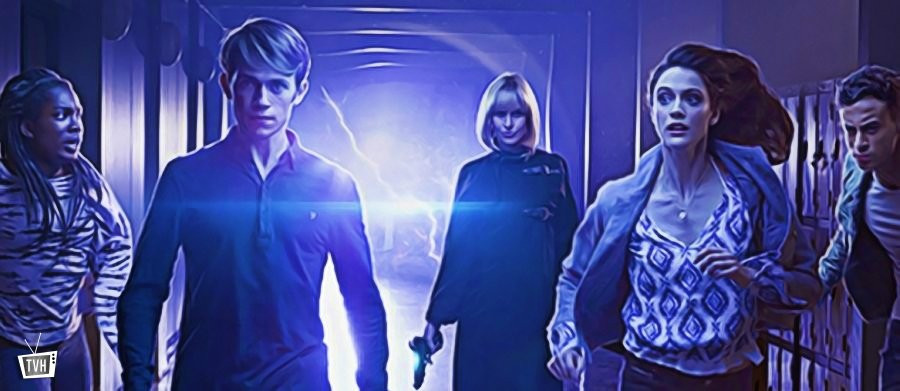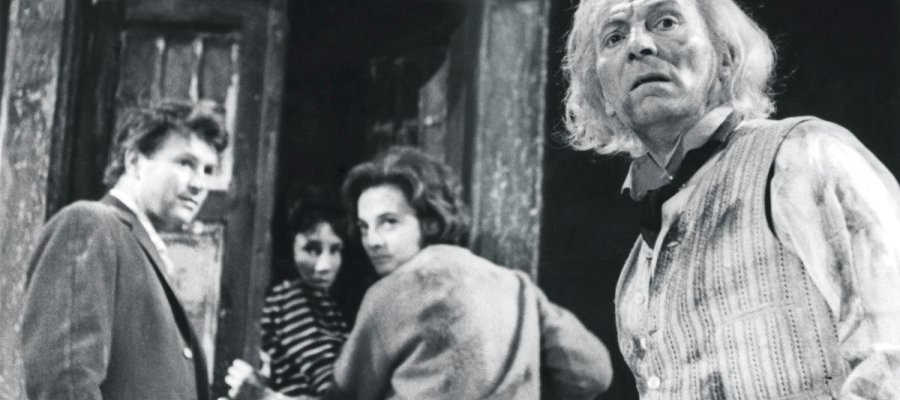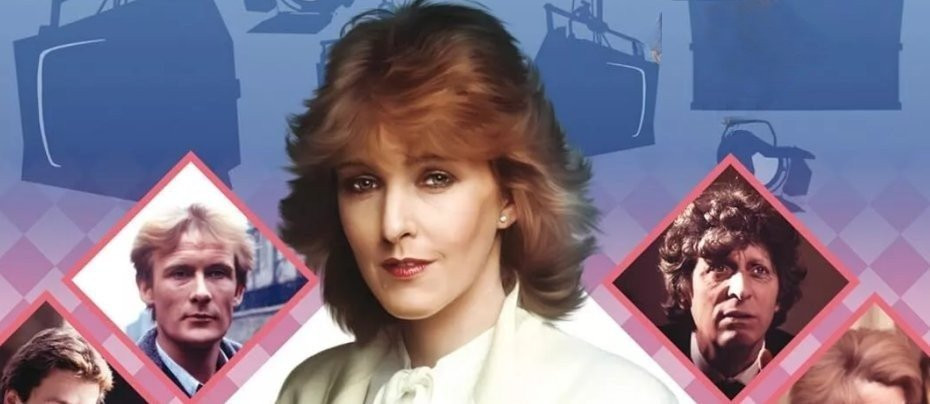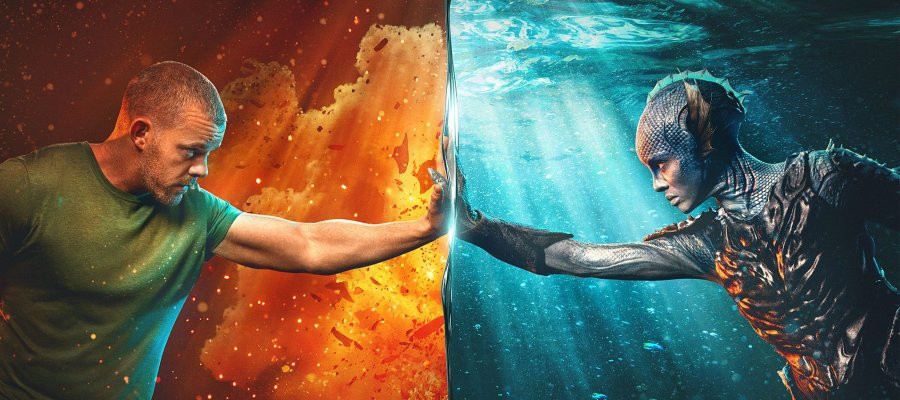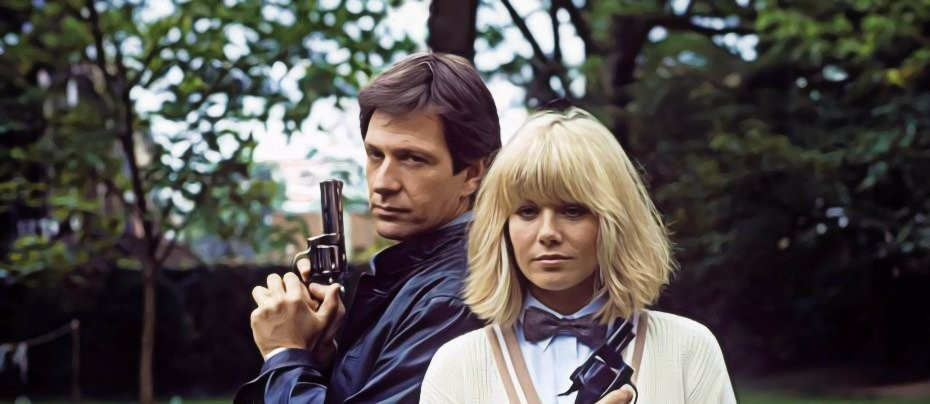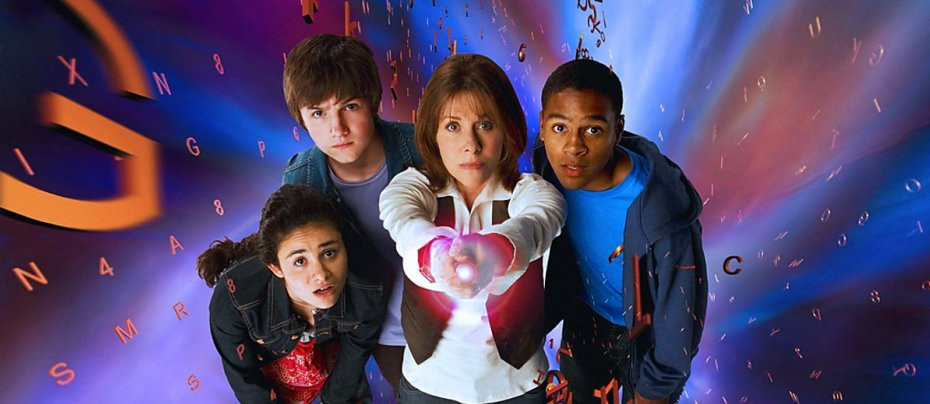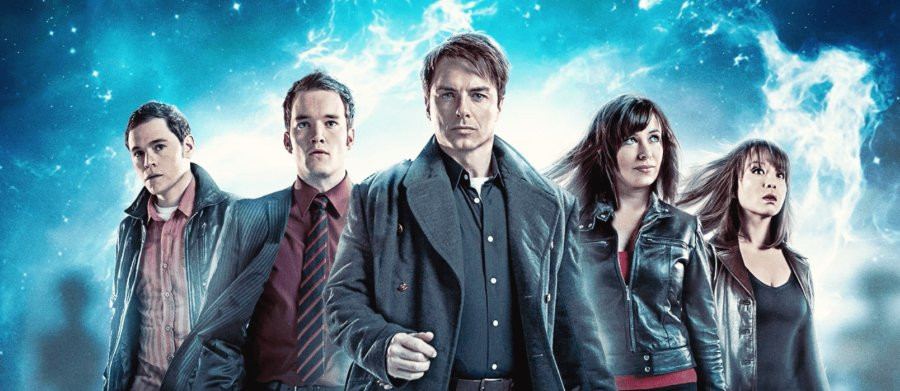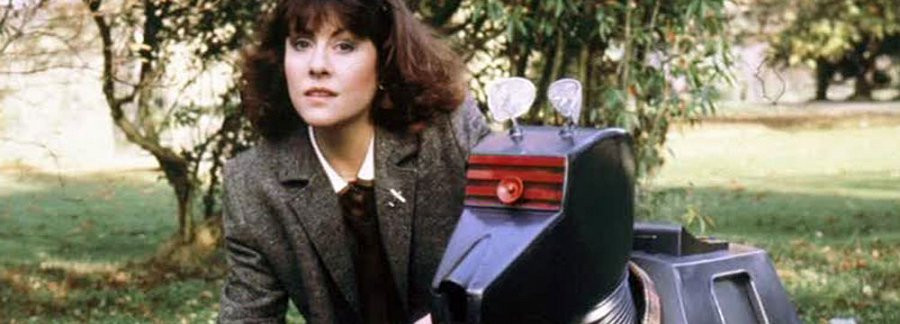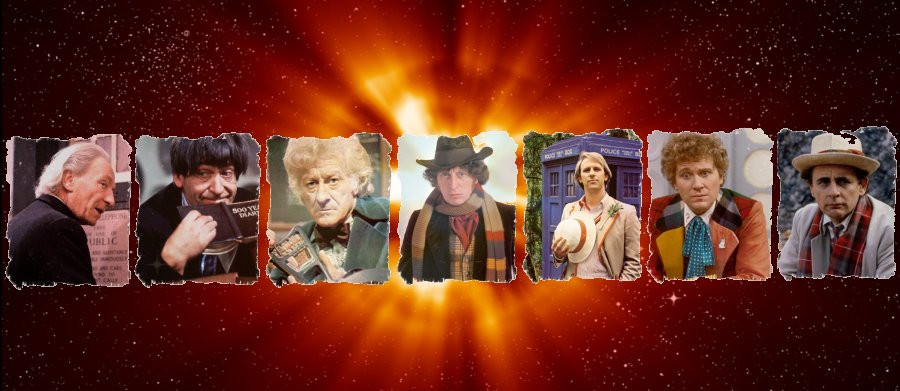Destiny of the Daleks (1979)
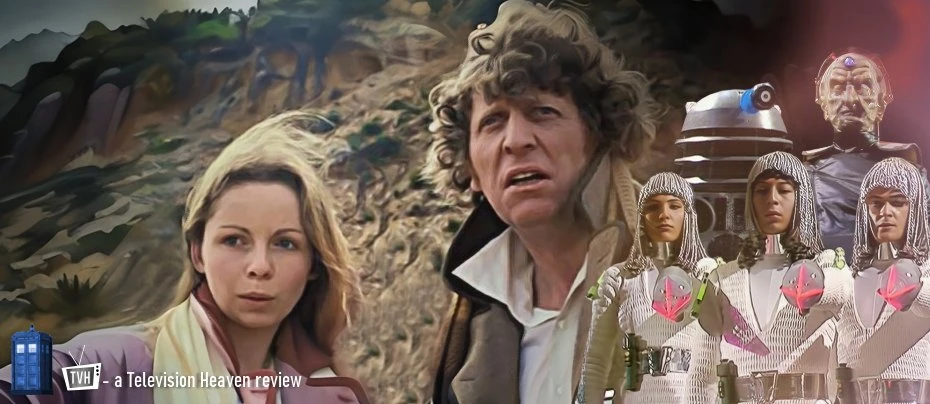
Review: Daniel Tessier
Doctor Who entered its seventeenth season with the long-awaited return of the Daleks, who had last featured in Genesis of the Daleks four years earlier. Genesis is widely considered a classic of the original Doctor Who's golden era, delivering not only a gripping and chilling war story but also introducing Davros, the Daleks' legendary creator and one of the series' most memorable villains.
While not the longest gap between their appearances, these four years were an unusually long absence by the Daleks, the single most popular and resilient monster race in Doctor Who. During this time the Daleks’ real-life creator, Terry Nation, was unsuccessfully shopping his creatures around in the hopes of launching them in their own series (and not for the first time). When development of the 1979 season was in its early stages, Nation once again tried to sell this idea to the BBC. They weren’t interested, but Doctor Who producer Graham Williams and new script editor Douglas Adams were keen to have him back onboard to script another Dalek serial.
Although the return of the Daleks and Davros was big news for Who fans, the main factor in the decision was the dearth of usable scripts for the upcoming series, a not-uncommon issue in this period of Doctor Who production. Nation was well known for being able to bash out a script quickly and with the minimum of fuss. His scripts were also well known as being straightforward in the extreme; Genesis of the Daleks is thought to have been as much the work of then-editor Robert Holmes as Nation himself. Adams was reportedly surprised by just how much work Nation’s script for Destiny of the Daleks required to get up to his standards. Nation, for his part, disapproved of Adams’s edits, which he felt sent up his creations. He arguably had a point.
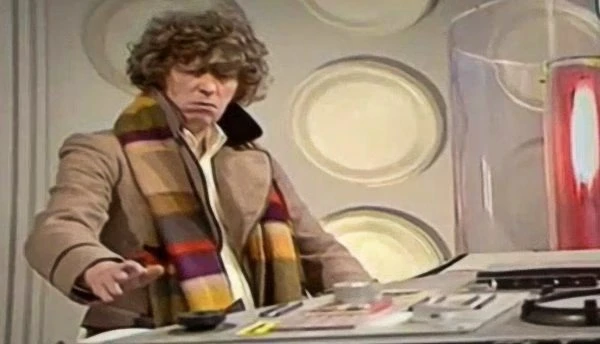
Destiny of the Daleks starts the season off in an odd way, with the Doctor’s companion Romana regenerating into a new body. Mary Tamm had declined to continue in the role for a second season, and Lalla Ward, reasonably famous at the time for her role in The Duchess of Duke Street, was cast as her replacement. Ward had portrayed Astra, a space princess in the final serial of the previous season, The Armageddon Factor. Tamm suggested, perhaps not entirely seriously, that Ward could replace her, and, crucially, she and Tom Baker got on together, which helped in dealing with the increasingly demanding lead's moods. As a Time Lady, Romana could regenerate just like the Doctor, without the need for a complicated farewell story. As good as Tamm was as Romana's “ice maiden” persona, Ward injects a much needed sense of fun into the role. While just as posh, classy and intelligent, the new Romana has an impish charm that's makes her immediately likeable.
The regeneration scene sets the tone for what follows. The new Romana walks into the TARDIS control room looking exactly like Princess Astra, royal regalia and all. The Doctor is not impressed, telling her she can't “go around wearing copies of bodies” (pretty rich, considering what the future had lined up for him). He tells her to try again, so off she goes, returning in a succession of new looks. It plays very much like Baker's own introduction in Robot in 1974, only with Romana trying on a series of new bodies instead of mere costumes. Rapidly, we get a small, silver-and-blue alien; a statuesque, voluptuous amazon; and an incredibly tall Grecian giantess, with Romana picking and discarding them like outfits for a party.
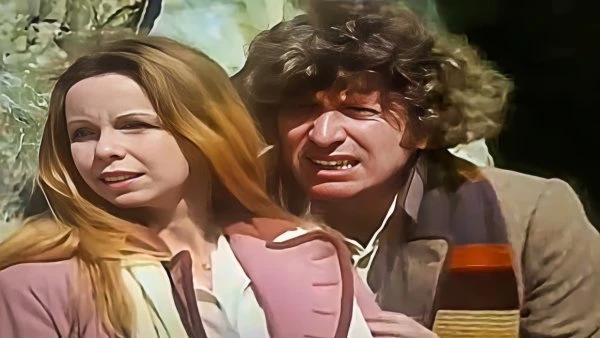
There's no explanation for why Romana has to regenerate; it's simply presented as a strange comedy sequence. Romana settles on the attractive form of Lalla Ward and an outfit that resembles the Doctor's, only in pink and white, cementing that this Romana is most certainly the equal of the Doctor. The TARDIS lands on an arid and radioactive planet, leading to the Doctor's timeless exclamation upon scanning the surroundings: “Oh look! Rocks!”
It's clear we're not meant to be taking this entirely seriously. K-9 is staying onboard, with laryngitis of all things, which even the Doctor notes is patently ridiculous (in reality it was the impracticality of running the prop across a quarry that had him sit this one out). Working against this jovial atmosphere is the utterly grim nature of the story itself. The Doctor and Romana soon find that the planet is being mined by ragged slaves with a deathly pallor, forced to bury their dead under heaps of rock and then get straight back to the excavation. So lifeless are these unfortunates that the time travellers even wonder if they've landed on a world of zombies. Fittingly, then, most of the slave actors give pretty lifeless performances. The exception is Tim Barlow (Hot Fuzz, Derek) as Tyssan, who becomes a main player in the story. The deaf actor gives a strong, dignified performance as the rebellious slave.
It isn't long, of course, before they discover that they are on Skaro, the home planet of the Daleks. This is ironic, in a way; at the end of the previous season, the Doctor fitted a randomiser to the TARDIS in an attempt to outwit the villainous superbeing known as the Black Guardian. He immediately lands on the Dalek homeworld; the following serial sees him arrive on 20th century Earth. You couldn't imagine two more likely and predictable places to find the Doctor. Thought long abandoned, Skaro is once again home to a force of Daleks and their slaves, made to dig into the centuries-old ruins of the ancient Dalek city.
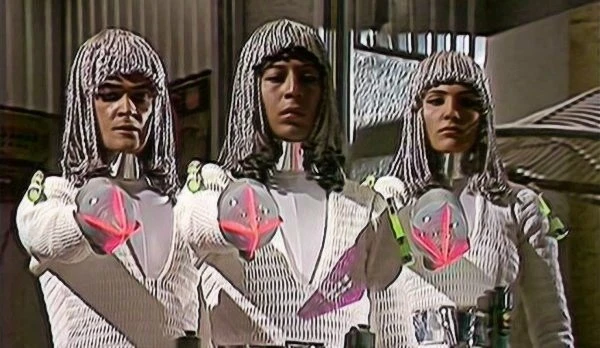
Meanwhile, another force has arrived on the planet: the Movellans. Tall, beautiful, athletic humanoids with silver hair and all-white futuristic costumes, the Movellans are the embodiment of the last days of disco. Peter Straker (Connie, The Orchid House) plays their leader, Commander Sharrell, but the real interest is in his underlings: Suzanne Danielle, fresh from starring in Carry On Emmanuelle, and Tony Osoba, best known for Dempsey and Makepeace and as Jock on Porridge. They all play the Movellans as resilient, calculating and cold-hearted; it's no surprise to discover that these silver-haired people are actually a race of androids.
An oddity arises when we are told that both the Daleks and the Movellans are not only at war, but locked in a stalemate due to both being bound by perfect logic. Upon learning that the Movellans are machines, the Doctor dismisses them and the Daleks as two races of robots locked in combat. Now, as any fool knows, the Daleks are not robots, but living creatures encased in armoured machines. While some dialogue suggests that it's actually the Daleks' battle computers that have reached stalemate with the Movellans, the Doctor also finds the remains of a “Kaled mutant” in the wasteland, noting that the Daleks “were once organic creatures.” The clear suggestion is that the Daleks have now developed beyond their original forms and are purely mechanical, an idea quietly dropped in future serials.
Not that either the Daleks or Movellans act in a very logical fashion. The androids are baffled by a simple game of “rock, paper, scissors,” the script claiming that a logical system will be unable to make a winning move in such a game (which is not the case). The Daleks fare worse; not only is one defeated by the old hat-over-the-eyestalk routine, but it then nearly shoots Davros out of panic and is blown up. The Daleks are looking pretty ropey as well, having been bashed about in storage for four years beyond the ability of a bit of paint and sticky tape to cover.
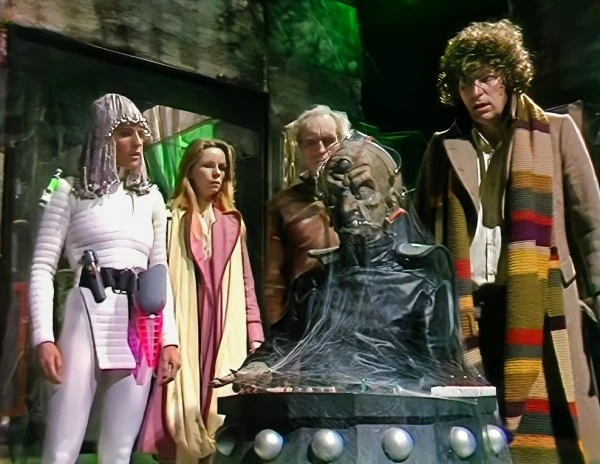
It's no wonder then that they've returned to their home planet and set their slaves to digging up their buried city, searching for the one man they believe can save them. Davros, as played by Michael Wisher, was pretty definitively killed at the end of Genesis of the Daleks, but the temptation to bring the villain back was clearly too powerful. Unfortunately, Wisher was unavailable, busy with a theatrical production in the Antipodes, leading to David Gooderson (Seaview, A Touch of Frost) taking over the role for this serial only. Living up to Wisher's legendary performance was never going to be easy, and Gooderson isn't really up to it. He's not helped by having to wear the ill-fitting mask made for his predecessor in fairness, but he really doesn't have the gravitas the role needs. His gradual revival beneath dust and cobwebs (they have spiders on Skaro?) is effective enough, but once the Doctor is wheeling him around and using him as a personal shield... well, he's never seemed less threatening.
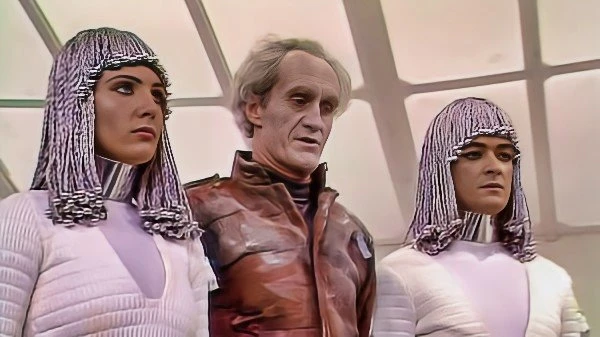
Some of Destiny of the Daleks works very well. Scenes with the dead-eyed slaves, and the cliffhanger to part one, in which a terrified Romana is interrogated by screaming Daleks, are genuinely unsettling. The limited use of music – part four has no incidental music at all – gives Skaro a bleak, desolate atmosphere, and for once, the use of a quarry as a location is exactly what the setting needs. Sound effects from the very first Dalek serial are reused to add further atmosphere. At a basic level, the idea of the Daleks coming up against a race as ruthless and inhuman as they are, but who are beautiful to human eyes and therefore seem more trustworthy, is a strong one. It's a clever inversion of the original Dalek story, where the blond and statuesque Thals were the noble heroes opposing the nasty mutant Daleks.
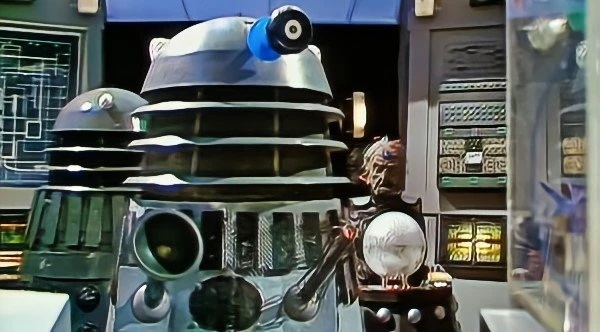
It's the disjoint in the telling that's the problem. Nation's approach is to knock out as straightforward an adventure as possible, with just enough incident to keep things moving along. Adams, on the other hand, is clearly bored with all that and refuses to take it seriously, peppering the script with Hitchhikers-style jokes and poking fun at the very concept. When the Doctor climbs up a shaft and mocks the Daleks for not being able to climb after him, the most obvious joke in the world, the danger is completely undercut. It's not that the Doctor shouldn't mock the Daleks – making fun of his enemies is what he does best – but the script as a whole has to take them seriously or they just don't work. The other issue with Adams twisting Nation's script to his own style is that most of it just isn't very funny. Indeed, the funniest bit of the whole story is when Baker fluffs his line, trying somehow to say, “back off” and “stay back” at the same time, leading to a priceless moment where our hero tells the Daleks to “Spack off!”
While it's pretty watchable, Destiny of the Daleks is hampered by a script that never quite gels and a production with too many shortcomings. However, by resurrecting Davros it left an enduring legacy, for every Dalek story until the end of the original Doctor Who series would feature the monsters' creator as their leader.


